Award ceremony
On 14 November 2023, at the European Social Innovation Competition Award ceremony in San Sebastian, the European Commission has announced the winners of this year’s challenge: “fighting energy poverty”. This prize acknowledges social innovation as a powerful approach for responding to societal challenges. Read more about the winners and the jury members of the 2023 edition.
Fighting energy poverty: the winners
ECODES No Home Without Energy (NHWE) is ECODES flagship programme to tackle energy poverty and improve the energy efficiency of Spanish low-income households. The programme was launched in 2013 to empower vulnerable families, social workers and welfare organisations working with them by transferring knowledge and tools to save on their energy bills, improve the comfort of their homes and reduce CO2 emissions. The programme offers information, diagnosis and personalised advice to understand and reduce energy bills, learn responsible consumption habits and access social bonus. It also channels funding and implements energy efficiency measures in low-income households (energy saving kits, shallow renovations, RREE) and raises awareness on available subsidies and funding programs to finance low performing building renovations. |
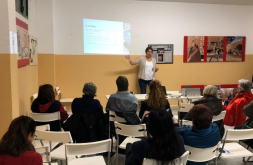
|
Eeklo The city of Eeklo in Belgium works closely with local citizen-energy cooperatives to ensure access to affordable, local, renewable energy for its citizens. Since 2000 several wind turbines were developed on public grounds of the city by the citizen-energy cooperatives Ecopower and Volterra. This way over 500 households (5% of total households) in Eeklo became member of the cooperatives in the last 20 years. As a city they want that their local energy is available for every citizen, especially households in energy poverty as they could benefit even more of lower energy prices from the cooperative Ecopower (that has a suppliers permit in Flanders). But becoming member of the cooperative means becoming shareholder by investing €250 euro in the cooperative, a financial barrier which makes membership out of reach for a lot of families in energy poverty. The city of Eeklo and Ecopower are setting up social energy shares to overcome this financial barrier. They work closely with social services to identify households with difficulties to pay their energy bill and help them transfer to the cooperative supplier if they are interested. |
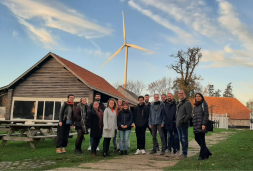
|
EmpowerMed Collective advisory assemblies (CAAs) are an innovative, flexible, impactful, ready-to-use tool applicable for addressing various forms and levels of energy poverty. CAAs take the form of sessions typically gathering 10 to 30 people and open to anyone who is experiencing difficulties in relation to the access and affordability of domestic energy services. Unlike individualised approaches based on one-on-one interventions CAAs constitute a horizontal engagement methodology in which people affected by energy poverty act ‘experts by practice’ capable of providing advanced peer-to-peer advice and guidance. Over 300 CAAs have been organised across Europe since the methodology was initially devised in Barcelona (Spain) in 2014, and its viability has been further confirmed by the Horizon 2020 EmpowerMed project, which enabled its replication in France, Italy, Slovenia, Croatia and Albania. The experience accumulated so far provides solid evidence on the positive impacts for vulnerable households in terms of cost savings, debt reduction, consumer empowerment and change of social imaginaries on energy poverty. |
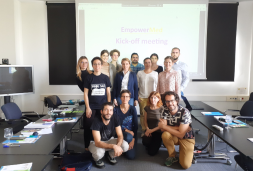
|
Jury Members
|
Anamaria Magri Pantea Anamaria Magri Pantea is co-founder and Managing Consultant of AscendConsulting.EU. An economist with specialisation in finance and business administration and more than 20 years of experience in entrepreneurship, innovation, business development support, as well as access to impact finance. Anamaria worked with the European Institute of Innovation and Technology to guide the implementation of the first three European Knowledge and Innovation Communities focused on climate, energy and digitalisation. She was also the Malta National Contact Point and Management Committee representative for the EU’s Competitiveness and Innovation Framework Programme for SMEs. |
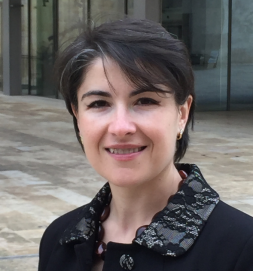
|
|
Bernard Mathieu Bernard Mathieu is a chemical engineer from the University of Liege (Belgium) and holds a Management Degree from the ICHEC Business School in Brussels. He is Professor in Sustainability at the Solvay Brussels School (Business school of the Université Libre de Bruxelles ULB). Bernard has more than 20 years of experience in the deployment of sustainability initiatives in the cement and concrete sector. He was notably Director Environmental Sustainability at HeidelbergCement and Head of Sustainable Development at Holcim and LafargeHolcim. He has been acting since 2018 as independent consultant in the decarbonization of energy-intensive sectors and of the construction sector. |
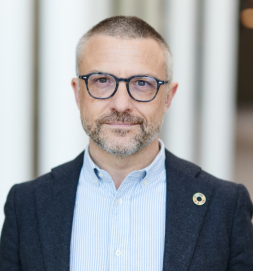
|
|
Marta Rey-García Marta Rey-García (Ph.D., Complutense University, Madrid; MBA, Columbia University, NY) is Full Professor of Management at the School of Economics and Business of the University of A Coruña (UDC), Spain. Since 2011, she is the director of the Inditex-UDC Chair of Sustainability and of its Graduate Course on Sustainability and Social Innovation, currently in its thirteenth edition. She has been work-package leader of the “ITSSOIN— Social Innovation and Civic Engagement” research project (European Commission, 7th Framework Program). Her research on social innovation has appeared in Business & Society, Review of Managerial Science, Service Business -An International Journal, The Service Industries Journal, Management Decision, and other peer-reviewed outlets. |
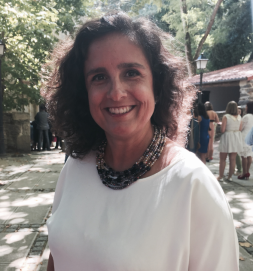
|